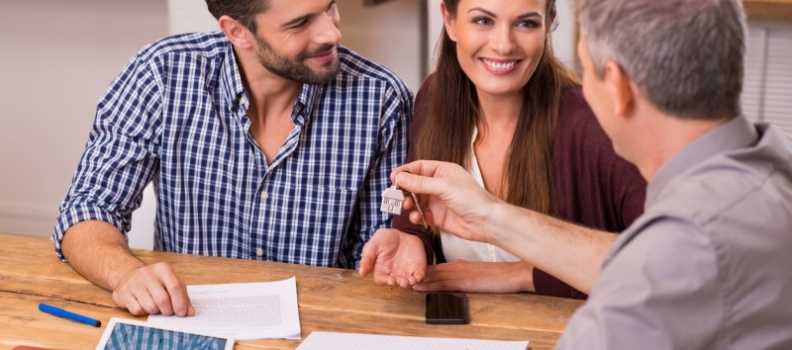
Buying a home is not a decision that should be taken lightly, it is one of the most important decisions of your life and you cannot leave any stone unturned. For this reason, we want to share with you a guide with the steps to buy a house .
Set the budget you can spend
Before buying a flat, you need to know how much you can afford to spend. Otherwise, you're planning for a certain amount, which then turns out to be completely out of line with reality. It's certainly essential to set the amount you can spend each month on investing in your property.
Experts recommend that the monthly mortgage payment should not exceed 30 or 35% of the household's income in order to comfortably cover the payments. In addition, without initial capital, it will be difficult for you to purchase a home. If you need financing, keep in mind that the bank will ask you for personal resources equivalent to 30% of the appraisal or sale value of the house.
The transaction is usually between 8% and 12% more expensive (depending on whether the home is new or used) due to the costs associated with the purchase and taxes.
Savings you have available
Buying a house involves a series of expenses that you must be able to foresee. The first is taxes. In a new house you will have to pay 10% VAT and in a second-hand house the percentage set by the Property Transfer Tax in your community, which will be around 8%. To these you must add the mortgage costs, which are mainly those of appraisal, notary and agency.
You should also be clear about the maximum amount of the mortgage. There are mortgages on the market for 100% of the value of the property, although the normal (and to a certain extent advisable) option is a mortgage for around 85% of the value of the property.
Simplify your search
Once you know what budget you can invest in your future home, you will have already taken a big step towards refining your search. Define the area in which you would like to live, what characteristics the property must have, and whether you want a new or second-hand home. With these parameters, you can use the apartment search engines on the Internet to make your search easier. You can also request the services of a real estate agency, if you have focused on second-hand housing, to help you find the most suitable property.
The treasure hunt is coming
This is the most fun and important part of the whole process: finding your home. Start by narrowing down the area. If possible, don't focus on just one neighbourhood, but expand your search to include several that fit your preferences. Ask yourself what type of house you want: it could be new or second-hand, an apartment, a semi-detached house, a chalet...
Also, consider what you want the home to look like now and in the future. The home you buy today may not be the one you need tomorrow. Will you mind moving? Will you rent or sell the home? The answers to these questions can help you find the home you need for a lifetime. With that information, you can start your search on major real estate portals or seek the help of a property manager. From there, it all comes down to visiting, visiting and more visiting homes. The more the merrier!
Precautions before purchasing
If you choose a second-hand house, it is advisable to make sure that it is free of liens so as not to have any unpleasant surprises in the future. The most practical thing to do is to go to the Property Registry and ask for an informative note on the property. This document will indicate who the owners of the property are, if there is any mortgage on it, if there is a pending seizure, etc.
Negotiate and be sure of what you buy
The difference between the average price of a property on real estate portals and the offers presented by users is significant. There is always room for negotiation in the price of a property, so take advantage of this to get the best price. While negotiating, make sure that what they sell is what you buy. This can be done by requesting a Simple Informative Note from the Property Registry.
Once you have closed the deal, you can sign a purchase reservation, which is a deposit you leave to ensure that the house is kept for you while you close the mortgage. The alternative is to sign a deposit contract, which offers greater legal security as a buyer.
Find your mortgage
The penultimate step on the road to buying your home is finding the right mortgage. The first thing to do is to be clear about the elements of a mortgage and how they interact with each other. The mistake you should avoid is to focus only on the installment you have to pay. Ask yourself which mortgage is best for you: a fixed rate or a variable rate. The first is safer, although the initial rate is higher; the second tends to be cheaper, although it will depend on the evolution of the Euribor.
To simplify your choice, you can use a mortgage calculator that does the math for you. This way, you'll always know how much you'll pay with each option. If you need money for renovations, there are mortgages that add the cost of the renovation to the loan to simplify everything.
Sign the mortgage and buy your house
The last step of your journey is actually the simplest. Once you have the mortgage, all that remains is to sign the loan and also the purchase of the house. Both operations are done on the same day and before the same notary. Once signed, all that remains is to register the operation in the Property Registry and enjoy your house.
